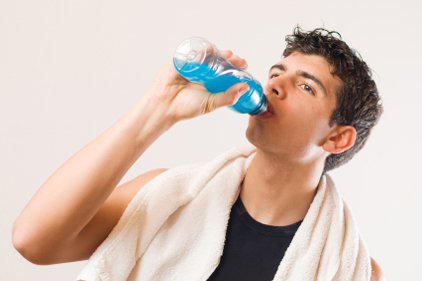Eric T. Schneiderman issued subpoenas in July to PepsiCo Inc., maker of AMP, Monster Beverage Corp. and Living Essentials LLC, maker of 5-hour Energy drink, according to a person familiar with the matter. The subpoenas asked for information on the companies' marketing and advertising practices.
The caffeine-heavy, carbonated beverages have become ubiquitous at grocery stores, gas stations and checkout counters across the country. Makers of the drinks, which are often sweetened with flavors such as grape or mixed berry, say they boost energy with a mix of additives including B-vitamins, taurine and ginseng. AMP's website, for example, says the B-vitamins and caffeine in its Boost drinks offers "the kick you need to tackle the early morning meeting." On its website, 5-hour Energy says it gives "hours of energy" with "no crash later."
The probe is the latest in a series of attention-getting moves by New York officials. In May, New York City Mayor Michael Bloomberg announced plans to restrict the sale of large sodas at restaurants, movie theaters and other locations, sparking criticism from the beverage industry. This month, New York's top banking regulator, Benjamin M. Lawsky, accused British bank Standard Chartered PLC of illegal dealings with Iranian entities, and the bank agreed to a $340 million settlement.
Energy drinks are among the fastest-growing products in the beverage sector. U.S. retail sales of the drinks rose 16% last year to $8.9 billion, accounting for 12% of the carbonated-soft-drink category. Monster leads in the U.S. by volume, ahead of Austria's Red Bull GmbH and Rockstar Inc.
The drinks are regulated more loosely than traditional sodas such as cola. In 2009, the Food and Drug Administration said it was "concerned" certain ingredients such as botanical extracts were being added to beverages and foods beyond their traditional use, which it said raised questions about safety. The federal agency says the term "energy drink" isn't defined by any FDA regulation, describing it as an ill-defined marketing term with widely varying ingredients.
The New York probe is focused on whether the drink makers are misleading consumers with inaccurate labeling and advertising, according to the person familiar with the matter. The investigation is in the early stages and could expand to other companies, that person said.
Spokespeople for PepsiCo, Monster and Living Essentials declined to comment.
Investigators are examining whether the companies overstated the benefits of exotic-sounding ingredients while understating the role of caffeine, a common stimulant that industry critics believe to be the main active ingredient, that person said.
The products' labels often don't say how much caffeine is contained in the drink. The label on Monster's 16oz. can says it contains caffeine but does not say how much; 5-hour Energy does not say how much caffeine is contained in one bottle, but its website says it is about as much as a cup of coffee.
The Monster spokeswoman said that on a per-ounce basis, Monster contains half the caffeine of some cups of coffee. "Monster energy drinks are completely safe, and we stand behind our products," she said in an email. AMP's label says it contains 10mg per fluid ounce.
Investigators are looking into whether the addition of ingredients like guarana -- another source of caffeine -- violates laws that ban putting multiple sources of caffeine in one beverage without disclosing the overall amount, according to the person familiar with the investigation.
If energy-drink makers are found to have violated certain New York state laws regulating food and drugs, they could be forced to pay civil fines and penalties, and to change their labeling and marketing.
While the FDA generally has jurisdiction to regulate food and drink safety, state attorneys general also have powers to investigate and regulate almost any product sold within the boundaries of their states.
California-based Monster disclosed in an August 9 Securities and Exchange Commission filing that it received a subpoena in July as part of an unnamed state attorney general's probe into the "advertising, marketing, promotion, ingredients, usage and sale" of its energy drinks. 5-hour Energy disclosed in a July bond-offering memorandum a state attorney general recently requested documents about its product and marketing.
Those disclosures are related to the New York attorney general's probe, people familiar with the matter said.
Some scientists and health experts say energy drinks deliver all their kick from caffeine, and that other ingredients, while not appearing to be dangerous, are simply a marketing gimmick. It is safe for the average person to consume about 400mg of caffeine per day, but overconsumption could cause heart problems, according to health experts.
"You're better off drinking a cup of coffee," said Tod Cooperman of ConsumerLab.com, which has conducted a chemical analysis of 5-hour Energy and other energy drinks. A study Cooperman conducted on 5-hour Energy found it contains 207mg of caffeine, far more than a typical cup of coffee's 80-100mg. "It's a stimulant," he said of 5-hour Energy.
